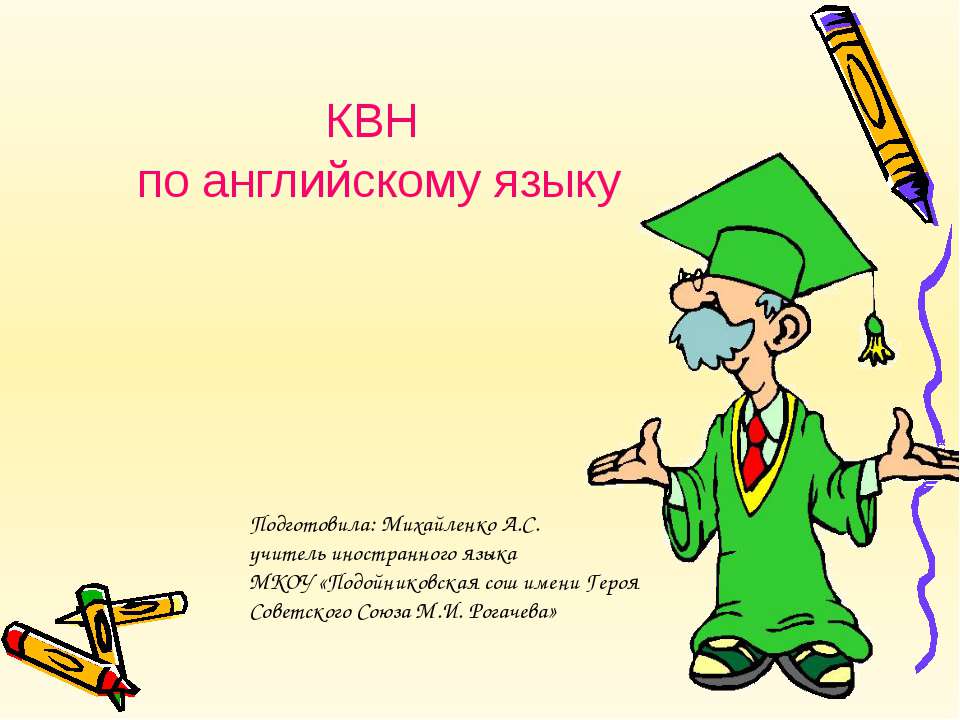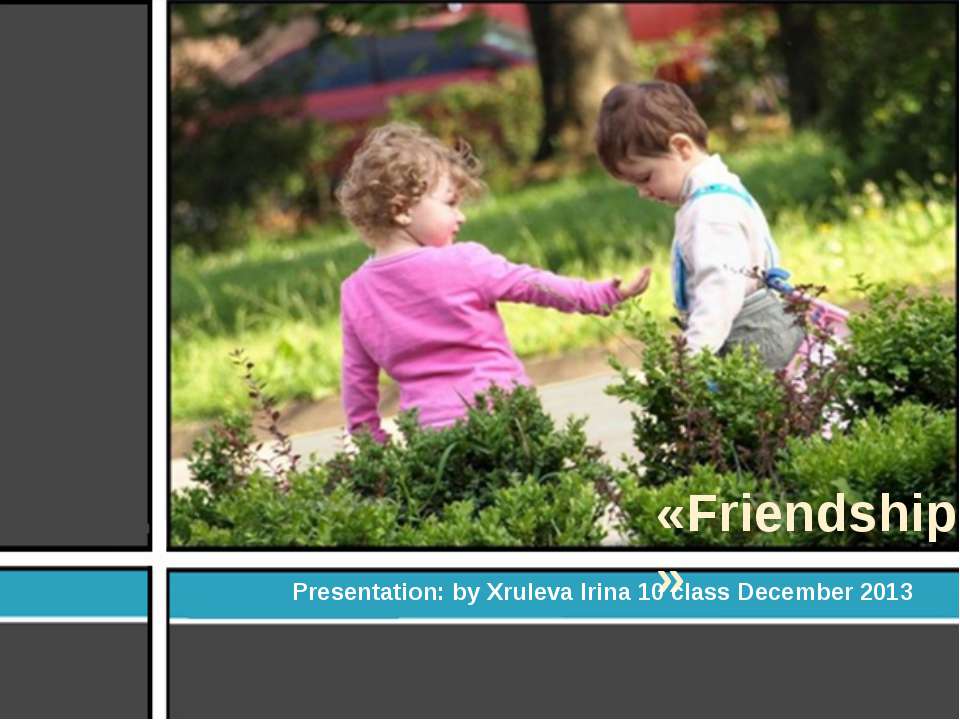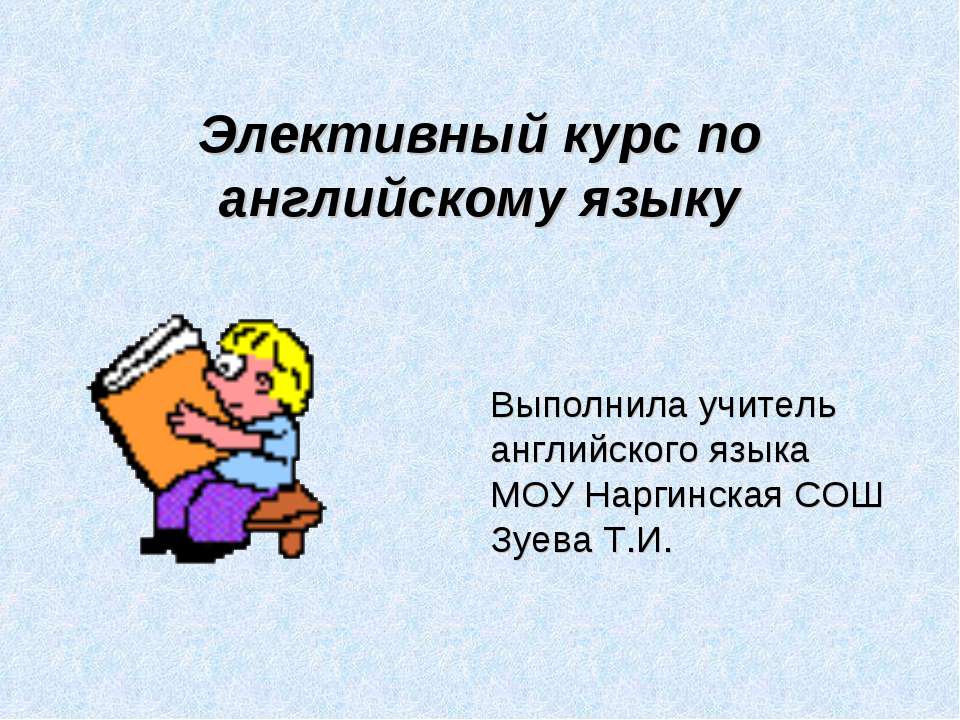Conditional sentences

- Рубрика: Презентации по английскому языку
- Просмотров: 507
Презентация "Conditional sentences" онлайн бесплатно на портале электронных презентаций school-present.com
Zero conditional Одно событие следует за другим- чем-то всегда истинным if = when If clause Main clause IF+ PRESENT SIMPLE PRESENT SIMPLE If youfreezewater, itturnsinto ice. If youspeakEnglish well, youhaveachance to get a well-paid job. If you…
1st Conditional 1. Используем, когда говорим о возможных событиях в БУДУЩЕМ, которые зависят от других будущих событий: If clause Main clause IF+ PRESENT SIMPLE WILL/WON`T+ INFINITIVE WITHOUT TO If youdon`t changeyour life stile, youwill haveheart attack. If the rain stops, The matchwill begin. If Alice is late, Wewon`twaitfor her long. Возможныи другие варианты: (сдругимимодальнымиглаголами) Ifyouhavetime, WeCANwalk home today.
1st Conditional 1. Используем, когда говорим о возможных событиях в БУДУЩЕМ, которые зависят от других будущих событий: If clause Main clause Возможныи другие варианты: (сдругимимодальнымиглаголами) Ifyouhavetime, WeCANwalk home today.
1st Conditional 2. Также используется, когда мы хотим дать совет, приказание выдвинуть предложение: If clause Main clause IF+ PRESENT SIMPLE IMPERATIVE ПОВЕЛИТЕЛЬНОЕНАКЛОНЕНИЕ ifyouhaveproblems, callme at once. (imperative) If youarelate for the last train takea taxi! If youfeelunwell goto bed!
unless -1 если не; пока не -2 кроме, исключая, за исключением Иногда в Zero и 1st conditional используется Unless + present simple когда мы говорим о событиях, которые могут случиться, если только кто-то этому не помешает. Main clause Unless+ present simple She always comes to work, unlessshe is seriously ill. We are always ready to help, unlessit is not too late.
2nd Conditional 1. используется, когда мы говорим о выдуманных, нереальных или маловероятных событиях В БУДУЮЩЕМ: If clause Main clause IF+ PAST Would/should(редко)/could/might +infinitivewithoutTO IfIwerea gold fish, Iwould livein a beautiful aquarium. If youwere notlate for the last train, youcould gethome without troubles. Ifhefailedthe exam, weallwould beso surprised
2nd Conditional 2. используется, когда мы говорим о нереальных или невозможных событиях В настоящем: If clause Main clause IF+ PAST Would/should(редко)/could/might +infinitivewithoutTO IfIwerenot overweight, Iwould not beion a diet now. If wehada villa inCaribbian, wewould spendour holidays there.
3rd Conditional 1. используется, когда мы говорим о нереальных ситуациях В ПРОШЛОМ: мы выдумываем вещи, которые не случились на самом деле. If clause Main clause IF+ PAST PERFECT! Would/should/could/might +have+V3 ! IfIhad entereda university (when I was young), Icould have becomea professor now. If Ihad knownthe truth before, Iwould not have helpedthat terrible man! Ifhehadn`tbrokenthat window, hewouldn`t have been takento police station,wouldn`t have beenlate for work andwould `t have beenfired.
Повторяем! Zero conditional Последовательныесобытия,истина, правила… Present simple If you eat much you put on weight. 1stconditional Будущее. Present simple/will (can,may) when youseethat guy, youwill besurprised! Совет, приказание Present simple/imperative If it is late, go home! 2ndconditional невозможное в будущем Past/would +V1 If yousawa ghost youwould beso frightened! невозможное в настоящем 3rdconditional Нереальноев прошлом; то, что не случилось. Pastperfect (had+V3)/ would+have+v3 If Ihad spokena foreign language, Iwould have madea career
If you (to love) nature you never ( to throw) litter outdoors. If I (to get up) late I usually (to have) a headache. If you (not to eat) long you (to get) weak. If you (to boil) ice it (to melt) and (to turn) into water. When you (to speak) your vocal chords (to vibrate). When a storm (to begin) people ( to shelter) in their homes. Нулевой тип условных. Раскройте скобки
Первый тип условных. Раскройте скобки If we (to walk) to the park we (to feed) some birds there. If they (to go) to the disco they (to listen) to loud music. If I (to go) to the theatre I (to watch) an interesting play. If you (to study) hard you (to pass) this exam. If you (to wear) these trousers you (to look) a bit strange. If you (to play) this composition your guests (be pleased). If David (to forget) his umbrella I (to give) him mine. If the sun (to shine) all day we (to go) to the beach. If he (to have) a temperature he (to see) the doctor.
If I (to see) Mary, I would (to be) really glad to meet her. If Rachael (to be) rich, she (to study) at a foreign college. If it (to snow) now, it (to be) really difficult to get to the country for us. surprised? If somebody (to rob) your house, what (to do) you? If I ever (to get) married, I (to do) it only of love. If I (to have) enough money, I (buy) a country cottage. Второй тип условных. Раскройте скобки
If he (to study) harder, he (to pass) his test better then. If we (to begin) the work earlier, we (to have) more time. Lena (to buy) the milk if she (forget) about it. They (not to get) into that accident if Jim (not to drive ) so fast. The dogs(to get out) if the door (to be) locked. If Jenny (to ask) me about the matter I (to answer) all her questions. I (to call) the police if I (to see) those robbers again. Третий тип условных. Раскройте скобки
Определите тип условного предложения If I were you I would tell him about their plan. If he had come yesterday we would have met him. If this story were not interesting I wouldn`t read it! If we had come a minute later, we would not have seen the matter. If it rains hard for a long time water runs along the streets. If I have some free time I will call on you.




















